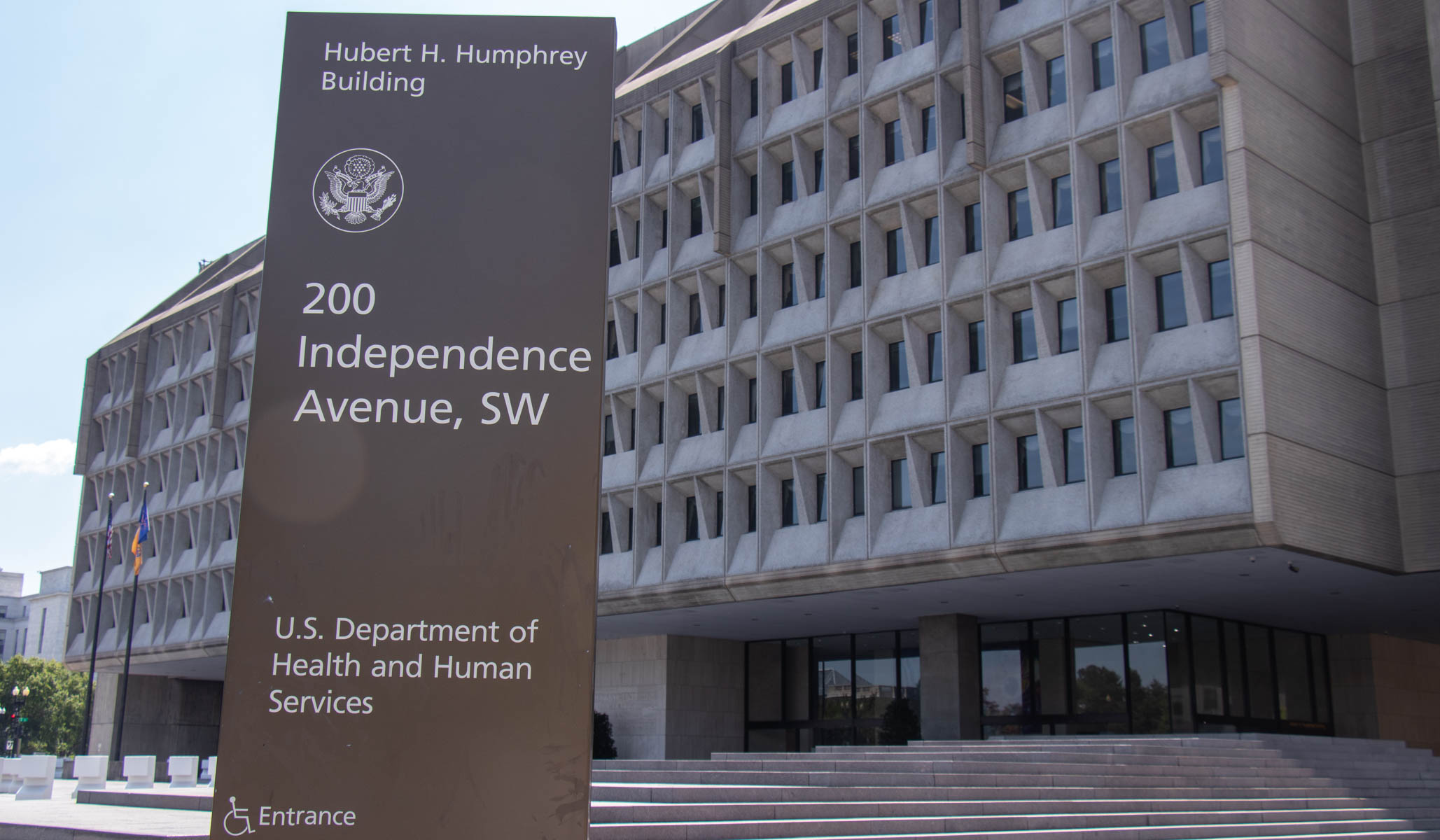 The Department of Health and Human Services building in Washington, D.C., August 5, 2021(Brent Buterbaugh/National Review)
The Department of Health and Human Services building in Washington, D.C., August 5, 2021(Brent Buterbaugh/National Review)Share
May 3, 2023
The Department of Health and Human Services and its subagency, the Centers for Medicare & Medicaid Services (CMS), have decided to require Saint Francis Health System in Oklahoma to either extinguish the sanctuary candle in its chapel or risk losing the ability to serve Medicare, Medicaid, or CHIP patients.
In response to the threat, Becket Law, a religious-liberty organization, sent a pre-litigation letter to the federal government urging it to reverse course or risk a lawsuit on religious-exercise grounds. Becket senior counsel Lori Windham explained to National Review that both the hospital and Becket were surprised to see HHS take a different interpretation of the fire-safety standards and claim that the living flame, which is lit in accordance with the Catholic faith, was a problem.
“The Code of Canon Law requires that wherever the Blessed Sacrament is kept, a special lamp must shine continuously,” read the letter, referring to the chapel’s offering of the Eucharist. Windham explained that the chapel and the worship offered there are “incredibly important to Saint Francis’s identity and mission.”
The chapel has existed for many years and was blessed and consecrated by the bishop, said Windham, adding that worship and service to patients go hand in hand.
“It would be a huge burden on Saint Francis to be told they could not continue to worship there,” she said. “It’s important when you’re looking at a religious charity, when you’re looking at a religious group to understand their faith and understand why something is important to them. If we lose that understanding then we end up with silly rules like this one.”
Saint Francis’s chapel and the living flame within have been approved by the local fire marshal in the past. “It’s never been a question that’s come up for federal regulators, but this year for the first time HHS has decided that Saint Francis should choose between keeping a living flame in its hospital chapel and its ability to serve the elderly, poor, and disabled who receive Medicaid, Medicare and CHIP through HHS,” Windham said.
The issue first arose with the hospital’s accreditor, the Joint Commission. Hospitals are accredited in order to serve Medicaid, Medicare and Children’s Health Insurance Program patients. When Saint Francis failed to address its difference with the accreditor, it appealed the issue to CMS requesting a reasonable accommodation, but CMS rejected that appeal.
“We’re not sure what standard they’re applying here,” explained Windham. “They have cited a regulation having to do with open flames in patients room or near medical equipment.”
However, said Windham, there isn’t a patient room nearby and the candle is not near any medical equipment. “It’s behind two glass candleholders and has a brass top on top of it,” Windham said. “There are other places where flames are allowed in the hospital like pilot lights on stoves in the kitchen or lights for gas-powered stove dryers. For some reason they’ve focused on the sanctuary candle, or living flame…This is really an unnecessary action to take and an unnecessary fight to have.”
Windham was confident that they will prevail in the courts if CMS continues to refuse to grant a waiver.
“Our constitution protects free exercise. Exercise is something you get out and do. It’s an action and being able to worship, being able to live out your faith in the chapel is a core religious exercise,” explained Windham. “The Supreme Court has protected religious exercise in many forms including going out and serving your community and so we believe that the courts are going to protect Saint Francis here.”
According to Becket, at issue here is a violation of the Religious Freedom Restoration Act, which prohibits the federal government from imposing substantial burdens on religious exercise, absent a compelling interest that is furthered through the least restrictive means available.
“That makes it clear that when the government wants to restrict religious freedom, they have to have a really good reason and this is a classic case of not having a really good reason,” explained Windham.
The organization argued in its letter it is not the federal government’s role to instruct a religious organization to use an electric candle: “Saint Francis is entitled to draw the line where it believes it must.” Becket also argued in the letter that the economic consequences to Saint Francis of not complying would be enormous and thus a substantial burden.
The letter argued that the federal government will fail to prove they had a compelling interest as flames are allowed elsewhere and zero concerns have been raised up to this point. Finally, Becket said the government hasn’t considered pursuing the least restrictive action against Saint Francis available.
“Short of granting a waiver, the government still has other less restrictive means available. It could ask that Saint Francis add additional shielding, or inspect the flame to confirm it is nowhere near oxygen equipment. It could accept Saint Francis’s proposal to add tile on the wall and floor around the candle. The fact that the government hasn’t even entertained such alternatives shows that it has not and cannot demonstrate that it is using the least restrictive means for furthering its interest in fire safety,” read the letter.
“I hope HHS will see the light and do the right thing. If they don’t we will go to court really soon,” added Windham.
Yes, there is a war being waged.
ReplyDelete